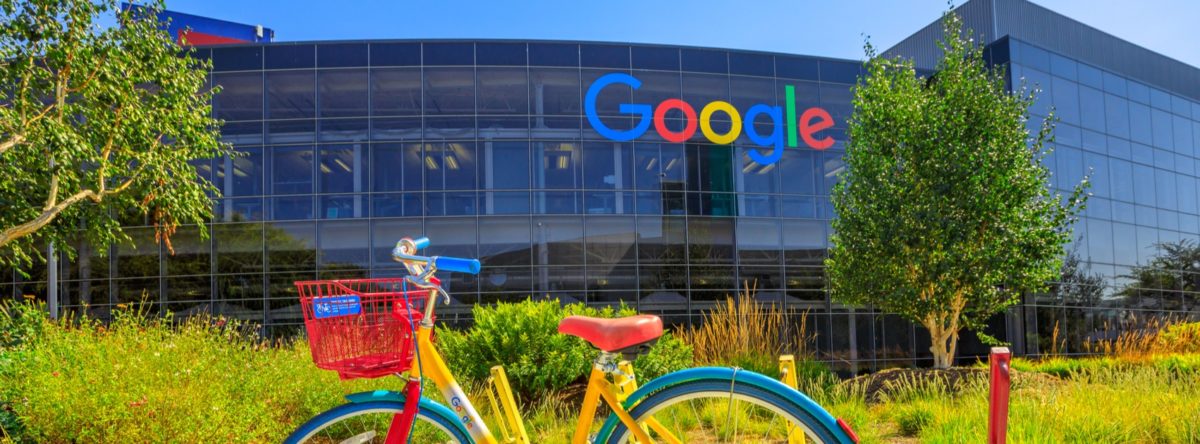What does Google know about you? In a nutshell…. a lot. Personalisation and data means money to Google, and the search giant is gathering a surprising amount of information about us all.
From serving relevant targeted ads to delivering the best search results, Google is quietly accumulating data about you
Of course the amount of data it is collecting depends on the types of services you use, but the quantity and detail of the data might surprise you.
How is Google collecting this data? Via a wide range of Google services including
- Your search history on the Google Search engine
- Your use of apps like Google Calendar, Google Drive, Google Docs
- Your browsing history using Google Chrome
- Your video history based on your YouTube seach and viewing actity
- Using Google Maps navigation and location services
- Your text messages and gaming activity on your Google Android
- And likewise, using Waze – the popular alternative to Google Maps, also owned by Google
Your Google ads personalisation
Google is serving advertising to you based on information in your Google account, data that it is aggregating from advertisers that partner with Google, and then Google’s own estimation of your interests. You can take a look at your profile, and make corrections as you see fit.
You can access this data by
- Go to the Google home page
- At the top right corner, click on your account icon and choose to Manage your account
- Select Privacy and Personalisation, Manage your data and personalisation
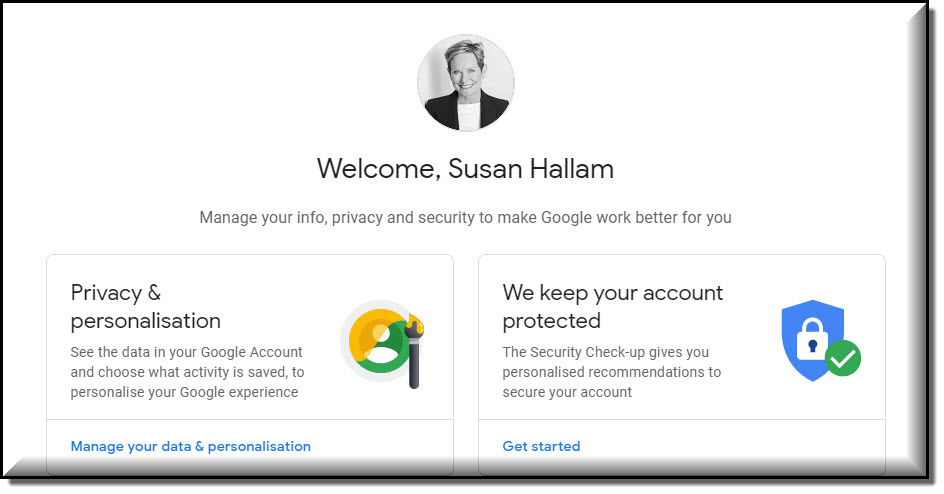
Take a look through How your ads are personalised. In my case some attributes are right, some attribute are wrong, and clearly some attributes are base on searches that I have just made very recently.
For example, Google is profiling me as a pet owning, 55-64 year old home owner interested in home automation and retirement and pensions. So far so good.
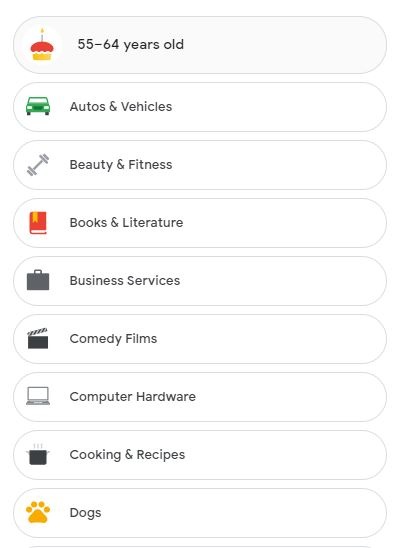
But it has also profiled me as having a Bachelor’s degree, interested in Horror Films and Shooter Games and Reality TV. Nope, none of those is true.
How does it come up with that profile? Based on my searching behaviour which is similar to people who have told Google that they’re in this category.
If you click on any one attribute, it will reveal how it has added an attribute to your profile, in this case extrapolating I’m a home owner:
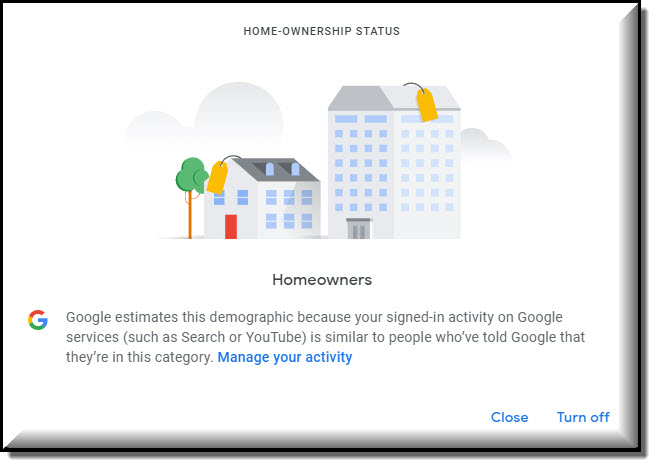
Advertisers, of course, and use this data, also known as in-market and life events data to target with advertising. Read our guide on how in-market and life events advertising works.
For example, the data Google knows about you can be as specific about your marriage plans (getting married, or recently married,) whether you are looking to move house, whether you have recently graduated:
Advertisers get dashboards for targeting that looks like this:
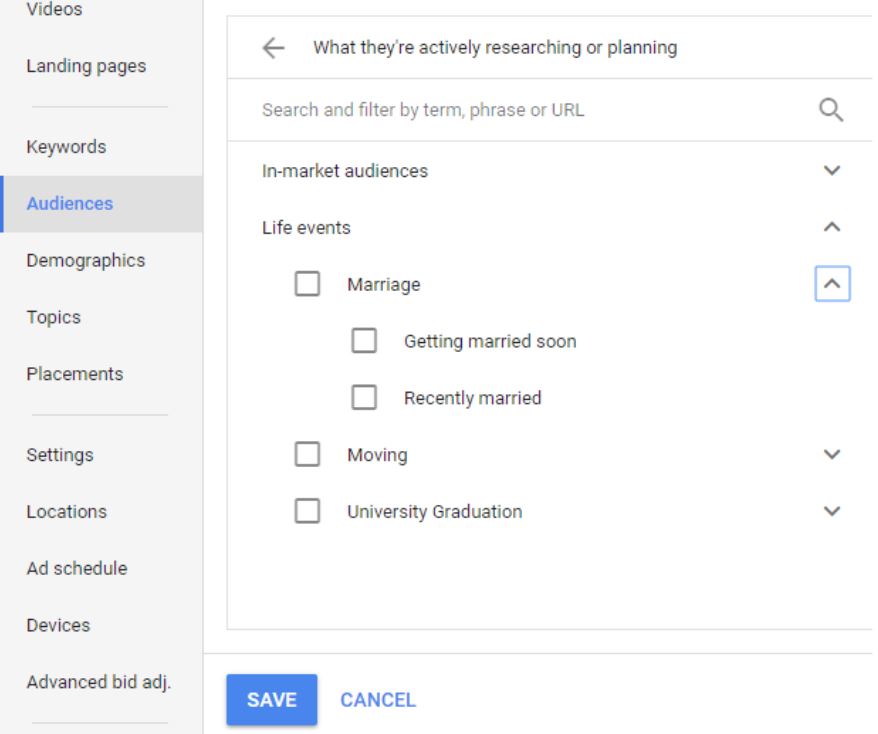
And also be sure to look at the demographic data being reported in your Google Analytics. Read this guide.
What does Google know? Your purchase history
Here is where it starts to get a bit scarier.
If you are a Google Gmail user, Google is tracking your purchase history.
You can access your purchase history here
https://mail.google.com/mail/u/0/#search/category%3Apurchases

Google knows your reservations
Reservations that I’ve made using Search, Maps and the Assistant are also being tracked and organised to “help you get things done.”
I can see Reservation data in Google My Activity
https://myactivity.google.com/myactivity
And of course further information for all the bookings I make with hotel sites like Hotels.com, flights itineraries I’ve booked, will be available in my Gmail account using this link
https://mail.google.com/mail/u/0/#search/category%3Areservations
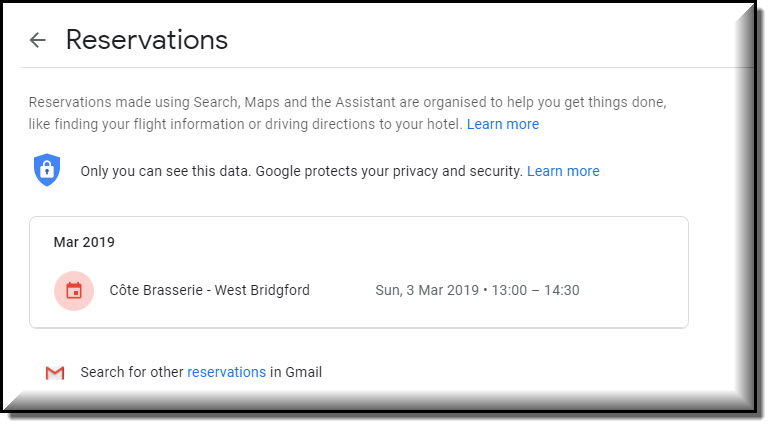
Your YouTube history
Your search history is keeping track of the videos you are watching, and again this is important information to building your profile.
You can access your search history in your Google My Activity.
https://myactivity.google.com/myactivity
And here I am, watching David Bowie and Shed Life:
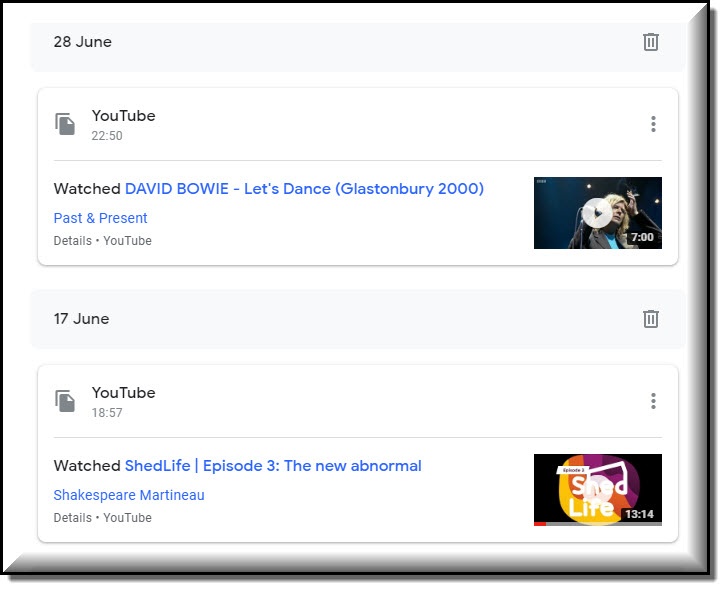
Your third party apps with access to your Google account
It is well worth reviewing the sites and apps with access to your account. Remove the apps that you no longer use.
And check this list out here, you might be surprised what apps have access to your potentially sensitive data.
https://myaccount.google.com/permissions
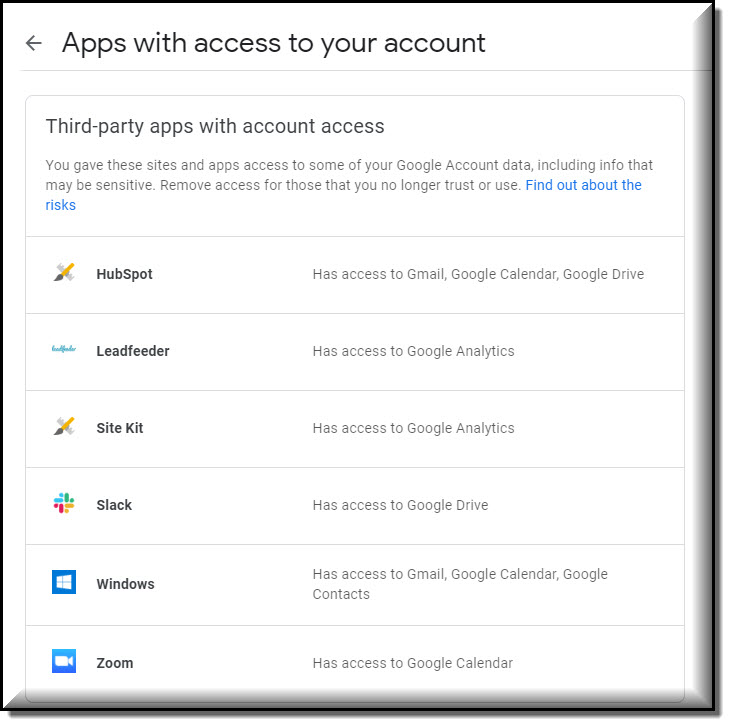
Google knows your location history
Depending on your mobile settings, Google could well be recording your location history.
You can see your location history here:
https://maps.google.com/locationhistory
It is tracking to quite detailed level, for example my holiday exploring around Hong Kong including the forms of transport I’ve taken, and shops I stopped at:
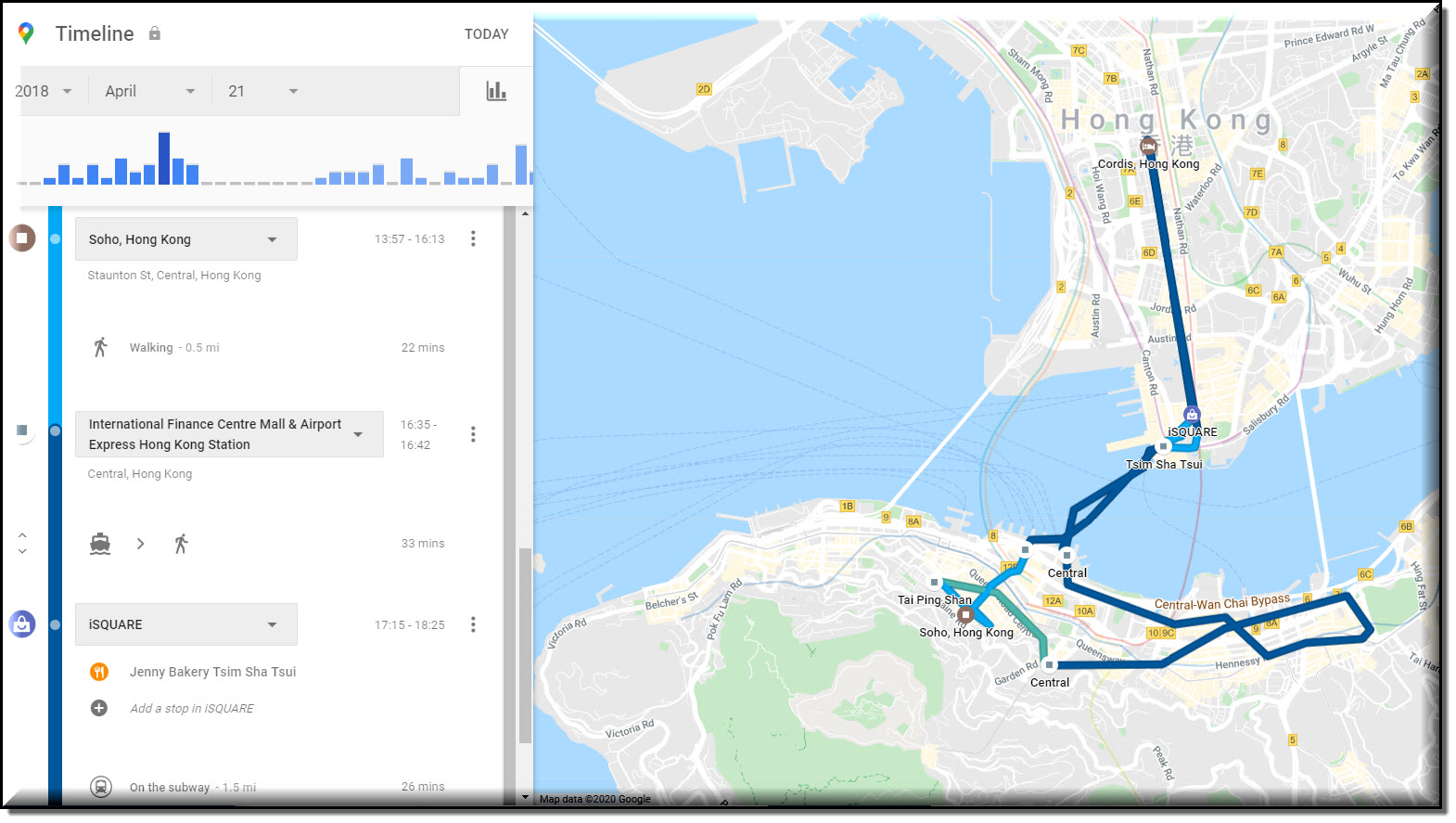
How to protect your privacy
- The one way to stop Google gathering data about you is simply to stop using their services.
- Remain signed out of Google accounts as much as possible
- Use two browsers, one that is signed in, and one that is not
- Use the Chrome Icognito option
- Opt out of Google personalised ad preferences
- Prune information out of your Google accounts
- Use Duck Duck Go instead of Google Search engine. Duck Duck Go’s promise is no tracking, no spying.
- Switch to an iPHone rather than an Android
- Run a privacy check from your Google account, and review the data to see what your comfortable with.
- Google Analytics provides webmasters with detailed information at individual level that shows how many pages you looked out, how long you stayed. If you don’t want to be tracked, Google makes available a Google Analtyics Opt-out Browser add-on
You can adjust all your privacy settings, download your data, and see and manage all the data in your Google account here:
https://myaccount.google.com/dashboard
Have you found this article useful?
Get Team Hallam's expert advice and guidance straight to your inbox once a week.
